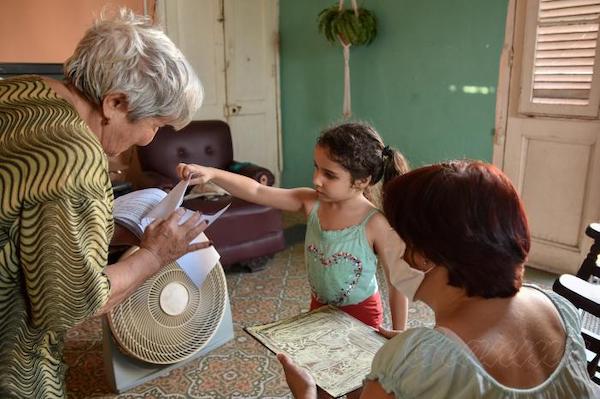Like any institution, the family is a social grouping that requires special attention from government in terms of its needs, including balancing work and home responsibilities and reducing domestic violence, among others.
Families vary, in terms of their composition, structure, and functioning. As our Constitution states, all different types are of interest to society as a whole, as is guaranteeing their rights and welfare. Policies and programs in many areas have an impact on families, often in unnoticed ways and perhaps not all families in the same way.
In the context of the current pandemic, the role of protecting family members becomes more important and requires more time and dedication. Taking care of our health, staying home, not going out unnecessarily, reporting any symptoms, being disciplined and responsible are priorities for our society now, to which families are fundamental.
There are those who think that the value of this institution is only apparent in happy moments, peaceful times, or that its function is to serve as an emotional refuge and solve daily problems. The value of families is evident and increases when each member assumes a responsible role within the unit, for the welfare, development and happiness of all members. It is essential that everyone participates in activities and tasks that support the family, that they share not only tastes and interests, but also responsibilities, and are concerned for each other.
The traditional division of productive and reproductive functions in households, based on sex, does not reflect our current reality. Increasingly, women around the world are engaged in productive work outside the home. In the case of Cuba, women participate in all sectors of the economy, and the economic function of many families has become more complex in recent years, as more and new forms of non-state work have emerged, in which several of members participate. These families have gone from being consumers to being producers of goods and services, and have established new forms of economic and personal relations among themselves.
Nevertheless, women continue to bear the greatest responsibility for reproductive functions, family care and household chores. A fundamental challenge around the world is ensuring that men and women share equal rights and duties in society. Gender equality in the home, the sharing of family responsibilities between men and women, and women’s participation in employment are basic elements of this challenge.
The family also plays an important role in education–in schools and beyond–and functions as an active mediator in transmitting human values, cultural identity and preserving intergenerational ties. In these times of pandemic, families have been key to ensuring that our children, adolescents and youth continue their studies through television classes, develop new study skills, and have access to enriching cultural products.
Good family communication is also essential, taking advantage of opportunities to talk with our children, since time is often short and everyone busy. It is a matter of encouraging frank, open and, above all, constructive communication, aimed at solving problems together – not arguing or fighting, much less using violence.
It is important to recognize that families are not passive agents of development, but that their special role and contributions to positive initiatives for development must be considered and made visible. In no way does this mean delegating all responsibilities to families. We are living in times of pandemic, an experience in co-responsibility for health care, with the state, the non-state economic sector, communities, families and the people themselves, all playing their part – a good practice to consider and implement in addressing other problems. In this context, Cuban families have demonstrated their strength in dealing with difficult conditions, based on the guarantees provided by the revolutionary government’s policies and programs, implemented for their protection and development, such as free universal education and health care, social security, and respect for and protection of the rights of children, women and all persons, as established in our Constitution.
Families are not only units of co-habitation, but also networks of support that are essential in confronting situations like the one we are facing right now, in which Cuban women have demonstrated an enormous capacity for resistance and creativity.
It is worth noting that, in the context of limitations on social interaction imposed by COVID-19, families have not lost their role in the education of younger generations, seen, for example, in support of school activities and the development of solidarity and internationalist values among children and youth. Families also contribute to preserving national and cultural identity, of critical importance given the cultural onslaught of globalized consumerism and individualism.
Concern for and attention to families as the basic units of society have always been priorities for the Revolution, at the forefront of which is the transformative work of the Federation of Cuban Women, in close collaboration with state institutions such as the Ministry of Education and the Ministry of Labor and Social Security.
If there is one thing the organization has emphasized, it is that all initiatives to contribute to the well-being and development of Cuban families can be improved. Reflecting on new ways to better serve families, to help them more, participating with them in the solution of problems and learning from their experiences, is an everyday, pending task.

